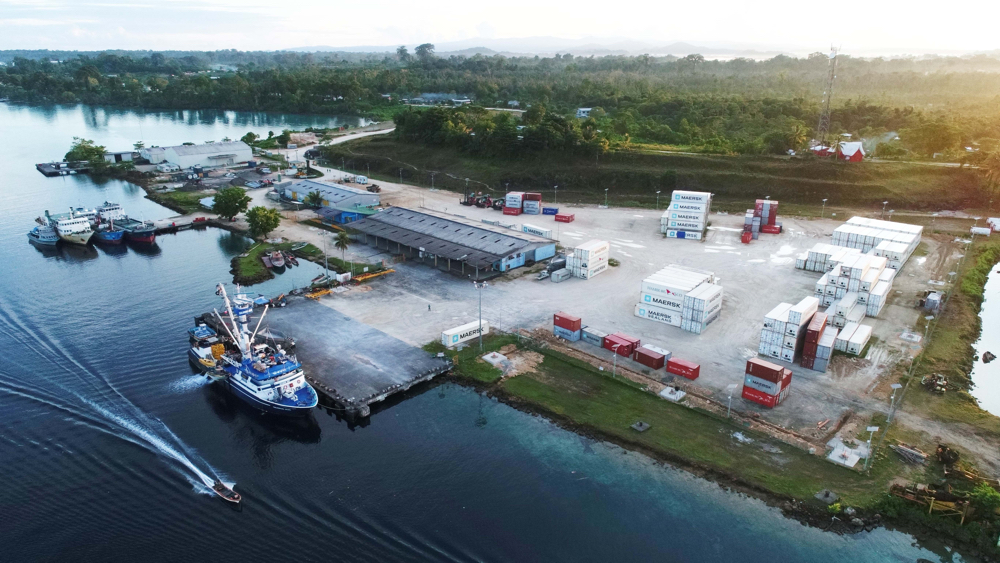WESTERN Province (WP) continues to face growing criticism from citizens and stakeholders across Solomon Islands for hosting major national projects like seaport and international airport.
The criticism follows recent announcements and ongoing discussions highlighting major national projects such as the Gizo International Seaport, Noro Industrial Port upgrades, and proposed national infrastructure developments, many of which are being implemented or planned in the Western Province in the past years to date.
Concerned citizens and social commentators have voiced frustration on social media and through community forums, questioning why the national government appears to be prioritizing one region over others, despite ongoing development needs in other provinces such as Malaita, Temotu, Rennell and Bellona, and Makira-Ulawa.
“It is not fair when most of the national budget and international aid support are concentrated in just one province,” a senior concern citizen in Honiara said.
“Other provinces have pressing needs too, needs better roads, schools, clinics, and communication services,’’ the concerned citizen added.
Several concerned leader also questioned that is it that Western Province is the only province in the country.
‘’Is Gizo the capital of Solomon Islands so almost national projects and other developments are focused in Western Province,’’ they questioned.
While Western Province leaders have welcomed the developments as crucial to national economic growth, particularly through tourism and fisheries, others argue that the government must adopt a more balanced approach to nation-building.
A former public servant from Isabel Province shared similar sentiments. “We are not against developments in the West. In fact, we applaud it. But we are concerned that national priorities are not being spread fairly to reach all corners of the country.”
In response, a senior official and prominent leader within the Western Provincial Government (WPG) speaking of anonymity, said the location of large-scale projects often depends on existing infrastructure, geographical advantage, and investor interest.
“Western Province, with its existing port facilities, resources and economic activity, naturally attracts more investment,” the official explained.
“But that does not mean the government is ignoring other provinces,’’ the official added.
However, critics argue that such explanations reinforce centralized planning and discourage inclusive development.
They have called for increased transparency in the planning and implementation of national projects, urging the government to consult more widely with provincial governments and rural communities.
Local observers also pointed out that while Western Province benefits from national projects, basic services in many of its own rural wards remain inadequate, and the provincial government has struggled to maintain infrastructure and services across all its islands.
Recent development projects in western province including the Noro Munda Tar sealing, Upgrading of Seghe Airport, proposed Gizo Nusatupe Airport Terminal, Seghe Market, Gizo Youth Centre, JFK Stadium FIFA refurbishment, Gizo road improvement s and other several proposed projects.
Meanwhile there are growing calls for a national development review that ensures equitable distribution of resources, support for rural-based projects, and meaningful inclusion of all provinces in national planning.
According to initial reports, Western Province contributes an estimated 16 to 20 percent of Solomon Islands’ national economic growth, underscoring its increasingly vital role in the country’s economy. This contribution is driven primarily by the logging, tourism, and industrial sectors.
In 2020 alone, log export duties from Western Province generated approximately $200 million, accounting for about 52 percent of the country’s total export duty revenue that year.
The province’s tourism sector also plays a significant role, providing direct, indirect, and induced employment opportunities to a large number of Solomon Islanders, particularly in rural and coastal communities.
Moreover, SolTuna Company and National Fisheries Development Ltd (NFD) both based in the Western Province form the backbone of the nation’s tuna industry.
Together, they employ over 3,000 workers, with 64 percent being women. The tuna sector alone contributes around 5 percent of Solomon Islands’ GDP, further highlighting the province’s strategic economic importance.
The Western Province has a population of approximately 94,209 according to the 2019 census report, predominantly of Melanesian background but a large number of Gilbert Islanders have made the province their home too in recent times.
By Ulutah Gina
Solomon Star, Gizo





